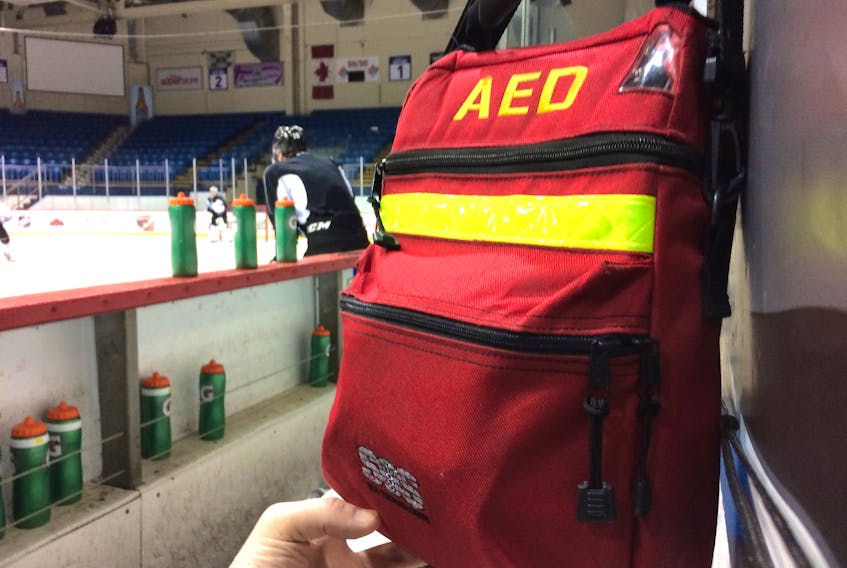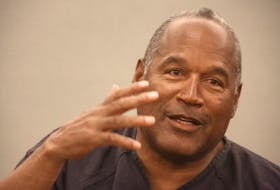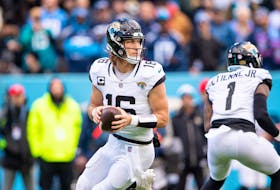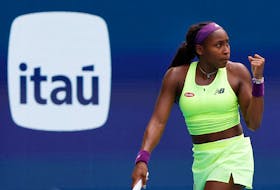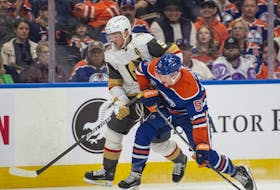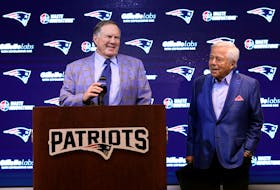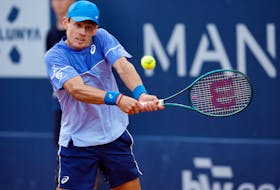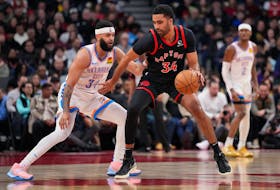CHARLOTTETOWN, P.E.I. –
Charlottetown Islanders athletic trainer Kevin Elliott is praising the Quebec Major Junior Hockey League (QMJHL) for its recent updated commitments to ensuring the safety of its players.
The league recently announced protocol changes regarding player safety and emergency scenarios in response to the sudden on-ice death of 16-year-old Jordan Boyd in August 2013.
The Acadie-Bathurst Titan's prospect collapsed during training camp and could not be revived via CPR. An autopsy later revealed he had an undiagnosed heart condition.
Elliott says he has been very pleased with the updates and the league’s commitment to safety.
“I give them enormous amounts of credit for being proactive for protection of the players,” he said.
A review of the Boyd incident found a defibrillator was not used in the first few minutes after he collapsed. Studies show the chances of survival are notably increased if an AED is used in the first five minutes.
The Islanders medical team has its own medical bag that they always have with them. It is fully stocked, including an AED. Elliott carries the bag with him on the bench, bus and hotels. The Eastlink Centre is also equipped with AEDs. Elliott says the machines are designed to be easy to use.
“The AEDs are set up so they’re user-friendly. It shows you exactly where to put it on. The machine tells you if you have conduction. It tells you to move back. It tells you when to shock and when not to shock.”
He says when the league conducts its training refresher courses each year as part of its annual entry draft, they go over a wide range of scenarios.
“We do on-ice scenarios. We practise logroll, AED scenarios, airway, lacerations, sudden cardiac arrest, anything that you can think of. One of the most important parts of the draft is having us certified and re-certified and re-accredited,” said Elliott.
The QMJHL also said it will conduct more thorough physical examinations of players and has expanded its health questionnaire, including a section on cardiovascular risk.
When training camp begins, the Islanders medical staff immediately gets to work on looking for red flags in players such as any players’ parents who have a previous history of heart disease. If a situation deemed a serious issue arises, protocols are in place.
“We don’t allow players on the ice. They’re not allowed to do anything. We then inform their parents that we would like to do further evaluation,” said Elliott.
The newly announced league protocols were implemented at the start of the 2017-18 season. Jordan Boyd’s father, Stephen Boyd, commended the league for recognizing the importance of updating their player safety regulations.
“What happened to Jordan was admittedly a rare event. But the reality is it has happened before, and it has happened several times since, both in amateur and professional hockey as well as other sports. And, unfortunately, it will continue to happen in sports. We just don’t know when or where. So it’s crucial that we’re prepared when it does happen.”
Making changes
The notable changes announced on Dec. 5 to the QMJHL's safety protocol include:
• Each team must have at least three team staff trained in CPR and life-saving techniques, including the use of an automated external defibrillator (AED). Two of these trained staff are to be at all team events, games, practices and tryouts.
• Each team shall have its own AED, which will be in the possession of the trainer/athletic therapist at all team events. This person will ensure the AED is in good working order.
• Each year, teams must report to the league which staff are trained in life-saving techniques and confirm their certification and annual refresher training.
twitter.com/PEIGuardian

